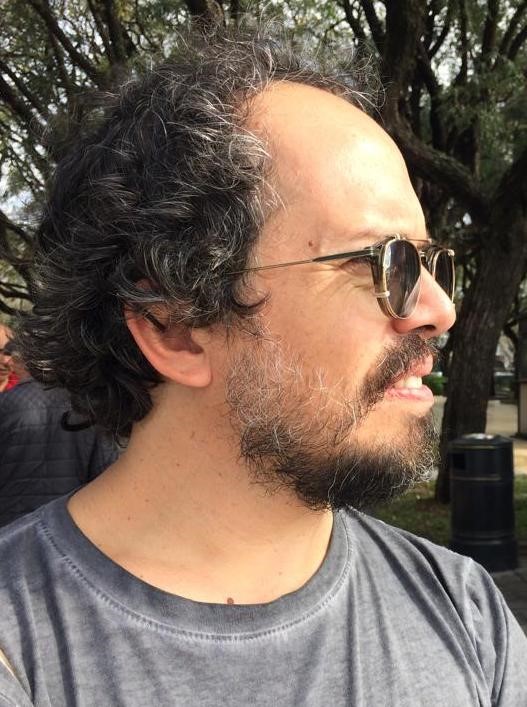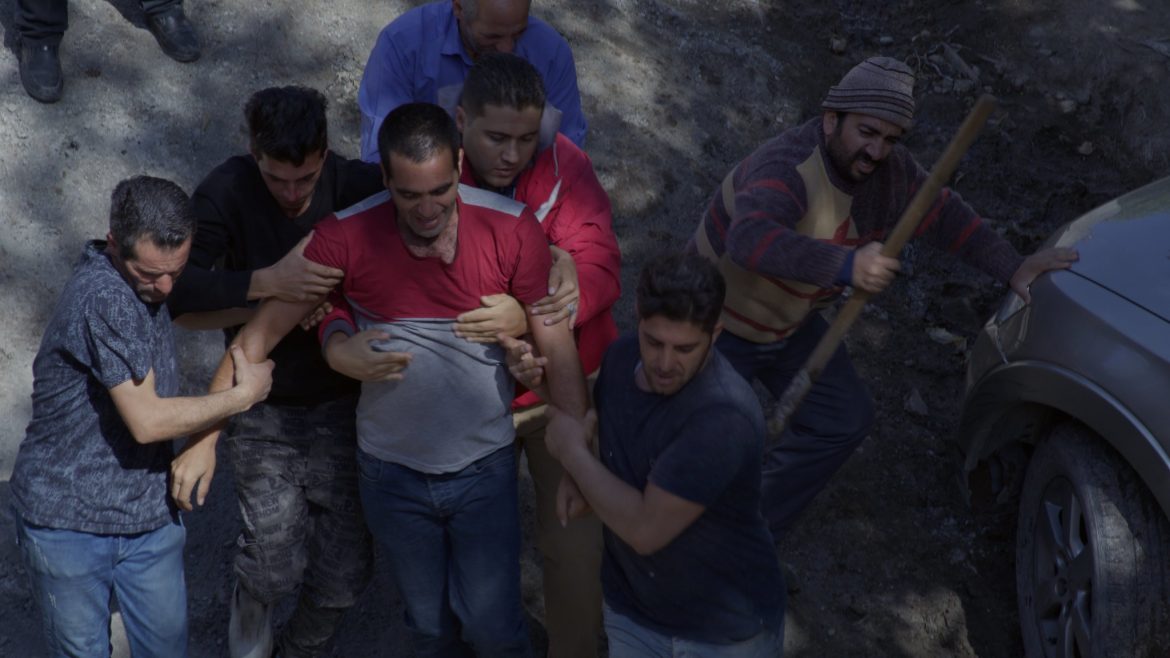The filmmaker competes in the feature film section of Canarias Cinema with a title coproduced by José Alayón’s El Viaje Films
Fillol presents “a film with many other films inside,” set in the dark 70s and that “plays with a night guard that has been very present in Argentina.”
Matadero is a political film, but also a crude reflection on the artist’s commitment to the work he wants to achieve at all costs
Las Palmas de Gran Canaria, Thursday, April 13, 2023.- “The Slaughter Yard” is considered the first Argentine fiction: a short story written by Esteban Echevarría around 1840, although it would not be published until twenty years after the author’s death. It is a crude and rural tale which revolves around the conflict between the wealthy classes and the workers, with the exploitation of cattle as a backdrop in which a fundamentally political story unfolds. It had never been made into a film until Santiago Fillol turned it into a movie in 2022. The Argentinean, Spanish and French co-production bears the seal of El Viaje Films, production company of the islander José Alayón. The title is probably the roughest and darkest feature film included in the Canarias Cinema section of this 2023 Las Palmas de Gran Canaria International Film Festival.

The Argentinean Fillol invents “a film with many other films inside,” a “potentially real” approach to the shooting of a period piece (the 19th Century in which the original tale was written) during the turbulent seventies in Argentina.
The filmmaker describes his Matadero as “a fiction, only that it plays with a night guard that has been very present in Argentina.” The original tale has a foundational character in his national literature, and, as the filmmaker recalls, “marks a struggle between the upper classes and the workers, who are portrayed as beasts.”
Although Fillol points out that Echevarría’s “The Slaughter Yard” has been very useful to “assign different roles to both sides, depending on the moment: the tables were turned depending on the time, the poor were the Peronists, or the rich were suddenly the ones who exploited the poor. We saw this problem, the question of who you film, whether the one who is being abused or the one who abuses. We had to think about how we put this on screen.”
The result presents a director obsessed with making the film he has in mind, regardless of the circumstances, a novice assistant director as enraptured by the filmmaker in the film as she is stupefied by the crudeness of what she wants to develop, a group of amateur actors with a vindictive spirit in a left-wing that was about to be persecuted by the regime.
Fillol notes how “we wanted to discuss the director’s approach from other points of view, from that of his assistant or from that of the actors, who are about to steal his movie. I was interested in having several films within the film. Another one could always have been possible, and that’s something we wanted to transfer to the audience’s heads. That’s where ours comes from.”
The director admits that “all of us who were born in the seventies in Argentina have that period in mind, which is also a moment we look back at it from the film, and try to understand those years, the nuances, the tensions that were at stake.”
Fillol, however, points out that “the seventies also resonate with me, not only in Argentina, but also in cinema, when people dreamed of a cinema larger than life.” There he mentions his personal references within his style: Coppola in Apocalypse Now or Herzog in Fizcarraldo, for example. “I found that drive to make something more real than the actual real to be very typical of the time. Also the idea of revolutions, in which a series of sacrifices are expected. Those Latin American pulsations had a possible anchorage with the cinema of the seventies,” observes the Argentinean filmmaker.
Was the shooting of Matadero complicated? “No more than others,” recalls its director, “shootings are always complicated, especially in pandemic times or in films in which, like this one, have included scenes with many extras, but it has not been particularly difficult compared to other works.”
Santiago Fillol, who holds a degree in Philosophy and Literature from the National University of Cordoba and a PhD in Audiovisual Communication from the Pompeu i Fabra University in Barcelona, returns to the Las Palmas de Gran Canaria International Film Festival after a long hiatus. In 2009 his first title, the documentary Ich Bin Enric Marco, competed in the Official Section. In between, Fillol has been building his name and his career, also as a screenwriter (he wrote, along with Oliver Laxe, the screenplay of 2019’s praised Lo que arde) and as a producer.
Less prolific as a director, the Argentine filmmaker has not lost track of the Gran-Canarian capital’s festival, an event “that I am very fond of, and that, among other things, has also become a very valuable forum for Latin American cinema.” His Matadero has already been at the Locarno, Seville and Mar del Plata festivals.
MATADERO
“A portrayal of an accursed filming in 1974’s Argentina with sublime cinematography.” Luna Frax, 22FICLPGC programmer
SCREENINGS
DATE – TIME – SESSION – SCREEN
14 APRIL 12:00-13:50 JURY AND PUBLIC – CINESA EL MUELLE SCREEN 9
14 APRIL 17:00-19:00 Q&A | JOSÉ ALAYÓN – CINESA EL MUELLE SCREEN 9
17 APRIL 20:15-22:05 LAST SCREENING – CINESA EL MUELLE SCREEN 4
Share this Post

